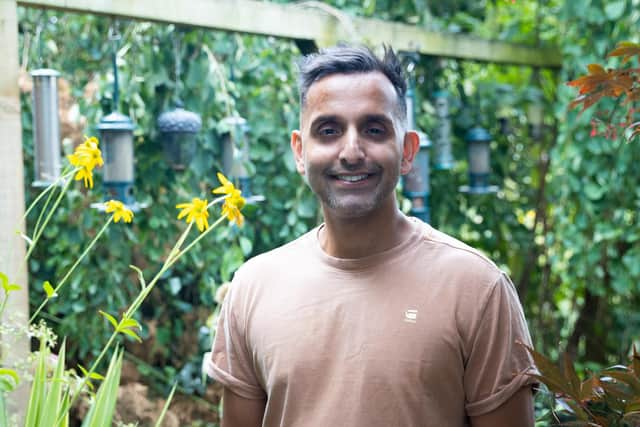Rishi Sunak must stand up for nature as UK falls woefully short of UN protection target: Dr Amir Khan
I understand that people don’t like getting bad news. It’s not easy for anyone to accept a diagnosis that requires them to change their habits, perhaps upend their entire lives.
But this week, as the world’s governments gather for the upcoming UN summit on biodiversity – called the Convention on Biodiversity COP15 in Montreal – they will find themselves facing some very hard truths. So will we.
Advertisement
Hide AdAdvertisement
Hide AdHere’s the facts: Over one million species are threatened with extinction globally. And it’s not just animals. Nature decline is putting climate, food, air and water security at risk.
At a time of great food supply disruptions – due to Covid-19 and war in Ukraine – a global drop in the population of natural pollinators (like bees) can make things much, much worse if crops start failing.
Here’s another fact, that might be harder to accept: Despite our professed love of our meadows and valleys, dales, moors and forests, and the thousands of species that inhabit them, the UK is one of the worst countries for nature, ranked 228th out of 240.
As things stand, only 5 per cent of UK land and precious little of its seas are properly protected and dedicated to the management and restoration of nature. We are miles away from the United Nations’ aim to have 30 per cent of land and sea protected by 2030.
Advertisement
Hide AdAdvertisement
Hide AdThe populations of 16 out of 20 of our favourite garden birds are in decline. More than a quarter of mammal species are at risk of completely disappearing.


We cannot go on like this. And yet, right now, we find ourselves at the tail end of decades of inaction.
An entire generation of politicians failed to do anything about the situation, simply allowing the decline to unfurl.
Now, despite the seeds of hope it contained, far too many of the promises contained in the last Conservative Party manifesto remain unfulfilled. The Prime Minister and other world leaders are not even expected to attend this once in a decade meeting where the next 10 years of targets will be agreed.
Advertisement
Hide AdAdvertisement
Hide AdWe can do something about it. During his leadership bid, Rishi Sunak signed a Conservative Environment Pledge committing to including halting species decline by 2030.


With his Richmond constituency perched on the edge of the dales - among Yorkshire and Britain’s most important natural assets, Rishi Sunak should know how essential a thriving natural world is to our economy, our health and our wellbeing. And yet his government has failed to convince leading conservation charities, including RSPB (of which I am president), WWF and Plantlife, that it is seriously committed to protecting nature.
In November, the head of Parliament’s Environmental Audit Committee, Philip Dunne MP, wrote to Therese Coffey to say he was “concerned to see that the Government failed to meet the statutory deadline of 31st October for laying a statutory instrument under the provisions of the Environment Act 2021 with new long term targets for air quality, water, biodiversity and species abundance and resource efficiency and waste reduction,” and urging her to publish the targets before COP15.
But with COP looming, Coffey could only tell the House of Lords environment committee last week that she would be “disappointed” if the targets were not published before Christmas.
Advertisement
Hide AdAdvertisement
Hide AdAlongside this, the Environmental Land Management Scheme, which is meant to reward farmers for nature-positive practices, has also been delayed, likely until January of February 2023.
Therese Coffey’s not the only one facing disappointment this Christmas. Farmers, rural communities, and nature lovers across the country, including the thousands who have written to the Prime Minister as part of the RSPB’s Urgent Conversation campaign, will be concerned that the government appears not to grasp the seriousness of the task ahead.
The RSPB and its partners last week premiered a film of a choreographed “human murmuration” featuring dozens of dance students showing how when humanity works together, like nature does, wonderful things can happen. COP15, we hope, will be a rare demonstration of synchrony and harmony in the world.
The UK cannot solve the global nature crisis alone. But it can do so much to improve its role in the fight to save the plants and animals that sustain us.
Advertisement
Hide AdAdvertisement
Hide AdAhead of COP15, we can all help apply pressure on the government to come back with something concrete - not just for Britain, but for the world. The convention should serve as an opportunity for Britain to kickstart its stalling commitments to nature and finally set out on a clear plan that leader will not only halt, but reverse the loss of biodiversity by 2030.
Dr Amir Khan is a GP, author and president of RSPB